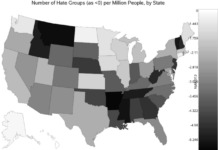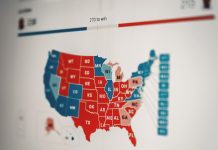In a move eerily similar to what Republican presidential candidate Sen.Ted Cruz is advocating, Democratic presidential candidate Sen. Bernie Sanders released a statement today vowing a contested convention when the Democratic National Committee meets to make its formal nomination for president in July.
At the heart of this move is this question: To whom does the super delegate vote belong? Is it for the individual to do as he or she pleases? Or should it be used according to the will of the people who have already voted?
Bernie Sanders believes the vote belongs to the people behind the superdelegate, and he has pledged to take that argument all the way to the convention in July.
“It is virtually impossible for Secretary [Hillary] Clinton to reach the majority of convention delegates by June 14 with pledged delegates alone,” he said.
“She will need superdelegates to take her over the top. The convention will be a contested contest,” he said.
The Democratic National Committee has 712 superdelegates. Superdelegates are primarily elected officials and other party elites who are allowed to vote for any candidate at the convention.
Many superdelegates pledged their support to Clinton before Sanders announced his canidacy. Citing polls that indicate Sanders would prevail in a head to head race with the Republican presidential candidate and front-runner, Donald Trump, Sanders is asking the superdelegates in states he won, to redirect their vote to him at the convention.
“Those superdelegates in states where either candidate, Secretary Clinton or myself, has won a landslide victory, those superdelegates ought to seriously reflect on whether they should cast their superdelegate vote in line with the wishes of the people of their states.”
Earlier this year, Elaine Karmack a professor at Harvard’s Kennedy School of Government gave host Terry Gross of the radio show “Fresh Air”, a recent example of how that has happened.
“In 2008, Hillary Clinton started out with most of the superdelegates. And as Obama won primaries and picked up public delegates, the superdelegates started to shift to Obama. And in the end, all the superdelegates voted for Obama. So, you know, the superdelegates simply are not bound by their state results. That doesn’t mean that they don’t pay attention to their state results.”
Sanders acknowledged in his statement today that securing traditional delegates from the remaining states will be a challenge, but he believes he is up to it. No matter what, he would like to see a change the Democratic Party nominating process. Whether or not that will happen remains to be seen.





